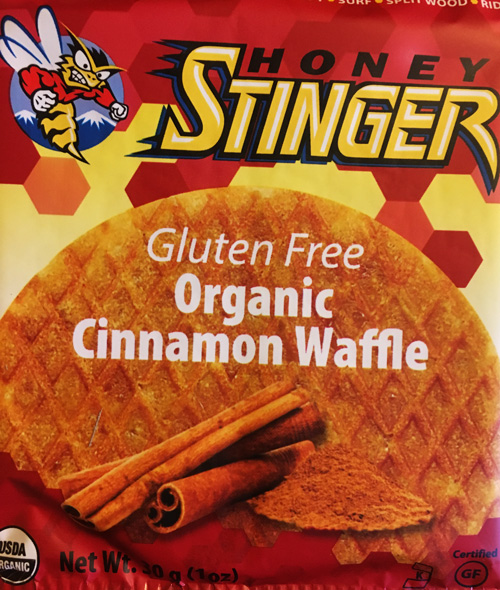Last Wednesday was a gorgeous sixty-degree day in February, not something we get all of the time during the winter in New Jersey. I was psyched to get out for a ride in shorts and short sleeves and soak in some sun. I was so psyched about the weather that I didn’t eat lunch before heading out for my noontime ride, in fact the night before I got home late and didn’t eat a real dinner either. I wasn’t feeling hungry though so it wasn’t a problem, right? Wrong!
Eighteen miles into my thirty-two mile ride, I started to feel a bit hungry so I ate the one Honey Stinger waffle I had tucked in my pocket. This helped for a few miles, but as I got to within the last five to six miles of the ride I could feel myself starting to bonk. I tried to drink more water to trick my body into thinking I was giving it fuel, but it wasn’t really working. As I got back to my car I was starting to feel a bit nauseous and woozy. I put my bike into the car and started to drive but it got progressively worse to the point where I thought I might not even be able to drive home. I hadn’t bonked like that in a long time. I did make it home safely, but my body and muscles felt depleted even into the next day.
In endurance sports when you “hit the wall” or “bonk” it means that your glycogen stores have become depleted causing you to suddenly feel fatigued, light headed and maybe even nauseous. Your power output or running speed will drop, you will start to feel drained and you may even experience cramping. Your body is looking for fuel to keep itself going and is finding nothing that it can quickly break down and use. Unless you are fueling during your ride or activity your glycogen stores will become depleted within two hours. If you are starting off with those stores only half full, like I was, it can start to affect you in an hour or less.
To avoid the bonk:
- Eat foods that are rich in complex carbohydrates before a race or a training day
- Make sure to drink plenty of water
- Replenish your body’s glycogen with your choice of energy food and/or electrolyte power in your water
- Don’t skip meals; in general, but especially in the days leading up to a race or long endurance event
- Don’t wait until you feel hungry or thirsty to eat or drink; that means your body is already giving you signs that it is depleted
I know I have written about proper fueling before, but this was a reminder to myself to follow my own advice! I haven’t hit the wall like that in a very long time and it was a sickeningly painful reminder to keep my body fueled at all times. I cannot skip meals and need to make sure I have extra food with me on the ride just in case my body starts running on fumes.
